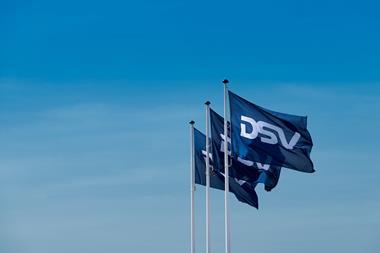
DSV Panalpina has acquired e-commerce specialist forwarder Prime Cargo, while it has also announced continued growth in its airfreight business in the third quarter.
The Denmark-headquartered forwarder has agreed to purchase Prime Cargo, including its activities in Denmark, Poland and China, from the Mitsui-Soko Group in Japan for an undisclosed sum.
Prime Cargo is headquartered in Kolding, Denmark, but operates internationally and has activities in both Poland and China.
"Prime Cargo is a company that DSV Panalpina has looked at with much respect for several years due to the company’s high degree of specialisation within selected verticals where DSV Panalpina has little activity," the forwarder said.
"With Prime Cargo’s strong competencies in the field of e-commerce and fashion retail, of which the current fashion product setup in China plays an important part, the company is a perfect match for DSV Panalpina’s Danish Solutions division and Air & Sea division, respectively."
Prime Cargo operates fully automated e-commerce warehouses and recently installed in a new warehouse in Oslo, Norway.
"With Prime Cargo’s competencies onboard, DSV Panalpina and Prime Cargo will have the ability to accelerate the e-commerce effort on a much larger scale," DSV said.
The transaction is expected to complete within two to three months subject to customary conditions, including clearance by applicable competition authorities. Until then Prime Cargo and DSV Panalpina will conduct their businesses as usual and independently.
Third-quarter results
Meanwhile, DSV has also announced its results for the third quarter of the year, with its airfreight business showing continued improvement in revenues and gross profits and volumes were up on the back of its acquisition of Panalpina.
The company saw third-quarter airfreight revenues increase by 40% year on year to Dkk10.2bn, while gross profit was up 41.1% to Dkk2.6bn. Air volumes for the period increased by 3.9% to 300,147 tonnes thanks to its Panalpina purchase in August last year.
"The airfreight market is still significantly impacted by the Covid-19 crisis, with market volumes still 15-20% below last year," DSV said.
"As most passenger planes are grounded, the bellyhold capacity is missing and total available capacity is more than 20% below pre-Covid-19 levels.
"The demand for air freight exceeds available capacity on most trade lanes,leading to higher-than-normal freight rates.
"We expect that the airfreight market will remain challenging in the foreseeable future. It may take two to three years before intercontinental passenger traffic is back at 2019 levels, and the market will continue to rely on freighter aircraft capacity.
"Currently,the demand is strongest for exports out of Asia, but other trade lanes are also picking up. When a Covid-19 vaccine is ready for distribution,this is likely to create further pressure on the airfreight market."
In July, DSV sold perishable forwarder AirFlo, which represented 5% of air volumes, but less than 2% of air revenues.
The overall company saw third-quarter revenues increase by 19.3% year on year to Dkk28.1bn, earnings before interest and tax increased 59.4% to Dkk2.7bn and profits were up 16.4% to Dkk1.3bn.
The company said: "The negative impact from the Covid-19 crisis eased off during Q3 2020, and we estimate that the activity levels on most logistics markets – except for airfreight – are close to the level in the same period last year."
Jens Bjørn Andersen, group chief executive, said: “In the third quarter of 2020, all three divisions delivered results above our expectations. Market conditions have been better than anticipated across most of our markets, and at the same time we benefit from efficient cost management.
"We are happy to announce that all material aspects of the Panalpina integration have now been successfully completed and we can now intensify the focus on organic growth.”















